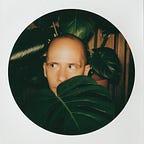Generally, everyone has a right to ask, anything. Don’t think that we all have a right to an answer about any given person’s background ethnicity.
I would never know what it’s like to be judged based on the skin color, but the feeling of being treated as an outsider based on accent or last name is all too familiar. Of course it’s not always a discrimination. Sometimes it’s just an annoying curiosity that’s rooted in our long history of drawing borders and general inability to travel great distances. Meaning that it would be very uncommon for someone of, say, Asian background to live in Africa just a couple hundred years ago.
Answering a question “Where are you from?” is difficult as it is already. Where am I from? There is no short answer. I was born in Russia, raised in Canada, lived in Asia for the past three ears, mainly in Thailand and spent about nine months in San Francisco a few weeks ago. What does that make me?
I certainly feel Canadian most of the time. That’s where most of my cultural influences, friends and family come from (at least for the past 15 years). So I say Canada. Here in Thailand that’s an expected answer for a white guy and we move on to the next conversation.
My fiancée is a Chinese-Canadian. Her life story is very much like mine (an immigrant child): born in China, lived in Japan following immigration to Canada. But she can’t say that she’s a Canadian here. Even though that’s her cultural background.
Just like Marie Zafimehy she gets looks of confusion. “You can’t possibly be Canadian, you aren’t white!” No one holding the integrity of their jaw dear to them said these words, but they did think them. The looks of confusion are easy to decipher. Friendly locals often reply: “Nooo! But you’re same-same!”
Clarifying Chinese-Canadian isn’t enough. In a country where immigration is not a part of the culture, it’s not easily understood that people can become anyone they wish to be or identify with.
In Thailand there is a large population of ethnic Chinese, Burmese, Laotians and Cambodians. But even after generations these people would still not call themselves Thais. Their world views are still skewed and narrow.
I think it’s important to realize that we are privileged to be able to be (often, but not always) accepted in Western cultures as this does not come easy (or at all) in the developing world. Moreover, our identities are beginning to become more and more complex. An estimated number of expats living abroad is to reach over a billion within next decade. Answering “where are you really from?” questions will become much more tough and annoying, I promise.
Let’s try and not forget that borders were made by men. They change; there are at least a few new countries that come and cease to exist every decade. What’s more we can now travel more freely than ever, meaning there is no prescribed geographical location for a skin color, language or favorite sports team.
